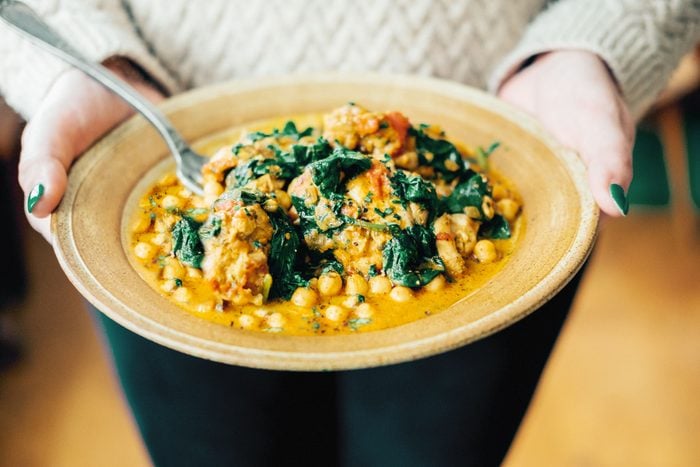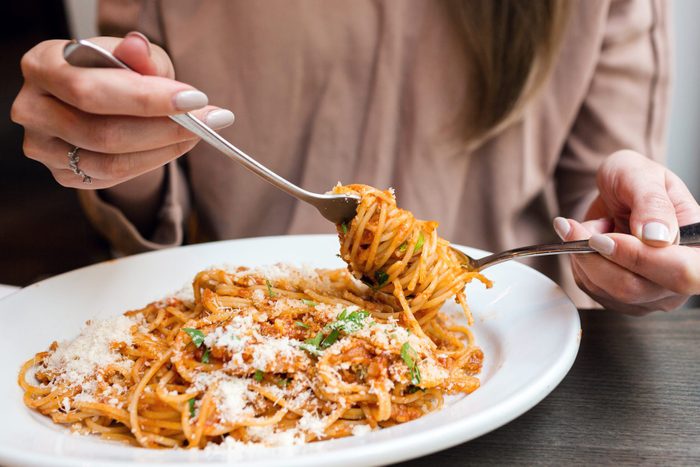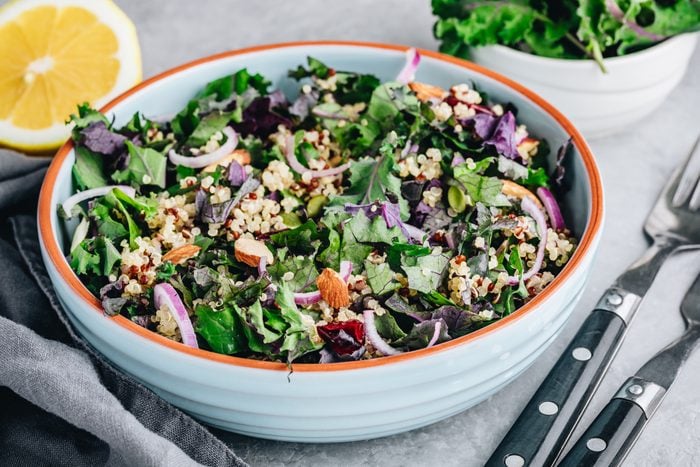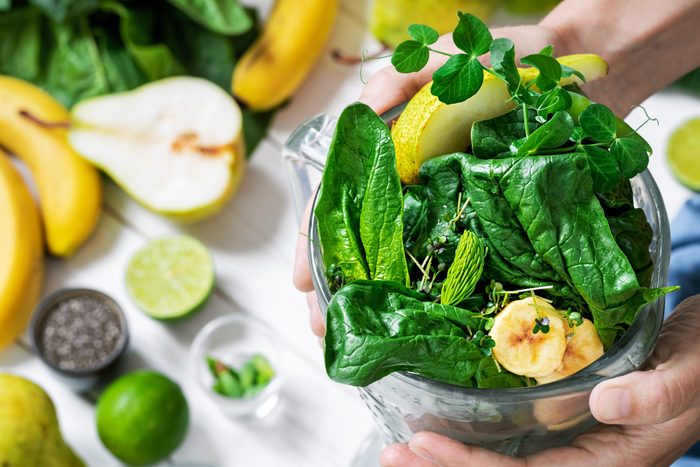
Having irregular bowel movements can be extremely uncomfortable, but also costly. A 2011 study noted that hundreds of million dollars are spent yearly on laxatives. Meanwhile, the blog for John Hopkins Medicine reports that about four million people in the United States have frequent constipation, and it’s the most common gastrointestinal complaint with 2.5 million doctor visits a year.
The Cleveland Clinic defines constipation as having fewer than three bowel movements a week. With so many people struggling to become “regular,” it’s important to take a closer look at what the root causes of constipation are and then make some diet and lifestyle changes to support digestion better. Certain foods can help with constipation—or exacerbate it.
Constipated? Gasto Doctors List 5 Sneaky Reasons for Constipation

What foods make constipation worse?
When dealing with constipation, you might have tried prune juice or upped your fiber intake with whole grains, but according to William Davis, MD, author of the #1 New York Times bestselling Wheat Belly series of books, eating fewer wheat products is actually the best first step to take if you have constipation.
“A major cause for constipation, even the more severe obstipation in which people move their bowels every one to three weeks, is consumption of something called gliadin-derived opioid peptides, i.e., partially-digested peptide fragments that derive from the consumption of wheat products such as bread, bagels, pancakes, or pasta,” Dr. Davis says. “These peptides have known opioid properties including appetite-stimulation on the brain. In the gastrointestinal (GI) tract, however, like all other opioids, they are constipating.”
Dr. Davis knows that this goes against traditional dietary advice. “Ironically, of course, many doctors, dietitians, and dietary guidelines advise us to consume more whole grains for the bran fiber, an inert and indigestible form of fiber that can indeed provide bulk and can improve regularity.”
“But you will be working against the constipating effect of gliadin-derived opioid peptides,” he explains. “While uncommon, I have witnessed an occasional person with the more severe obstipation lose 20 to 30 pounds over a week, purging their GI tract of stored stool, finally released by banishing all wheat products from their diet.”
Dr. Davis believes that “with these insights and strategies, we are not forcing constipation to yield to some maneuver such as a laxative or enema. Instead, you are addressing the underlying causes of constipation. A substantial side-benefit: improved overall health, in addition to better and more regular bowel movements.”

What foods help with constipation?
Dr. Davis tells The Healthy @Reader’s Digest that another common contributor to constipation is the absence of magnesium in drinking water, and the low quantity in modern food. Foods that help with constipation contain high levels of magnesium.
“Magnesium is needed by your GI tract to pull water into the intestines to maintain normal motility, ” Dr. Davis says. “Without magnesium, your GI tract struggles to propel material forward, i.e., constipation. A magnesium supplement such as magnesium citrate, magnesium malate, or magnesium chelate therefore exerts an osmotic effect and pulls water into the GI tract and can restore normal motility.”
“We dose magnesium by the amount of ‘elemental’ magnesium, i.e., magnesium without the weight of the citrate, malate, or chelate, and obtain around 400-500 mg magnesium per day, divided into two or three doses,” he says. “If you are dealing with an especially difficult case of constipation, you can temporarily double the dose for a few days to get things moving.” According to the National Institutes of Health, good sources of magnesium include green leafy vegetables, legumes, nuts, seeds and whole grains, making them all foods that help with constipation.

Drink enough water
Staying hydrated is also key to reducing constipation. If you are not getting enough fluids this could affect digestion, says Amy Reed MS, RD.
“A person’s fluid needs are determined by their size,” Reed says. “Most adults need around 65 ounces per day, and children need about 50 ounces per day.” Reed, who’s also a spokesperson for the Academy of Nutrition and Dietetics, says this is a general recommendation. In order to determine your specific fluid needs, you can consult a health care professional or registered dietitian. (Also, check out Here’s How Much Water You Really Need in a Day, with Nutritional Scientists’ Latest Wisdom.)
If you’re dealing with irregular bowel movements or constipation, Reed suggests eating a variety of foods that include fiber to encourage bowel regularity, such as fruits, vegetables, whole grains and legumes.
The 3 Best Hydrating Beverages That Aren’t Water, from a Certified Sports Dietitian

Should I stop eating if I’m constipated?
A nutrient-dense diet is so important for the human microbiome, and it’s really important to include a variety of foods to support gut health. If not this could make constipation worse. There can be multiple reasons for constipation. Some of the common reasons for constipation could be low fiber intake, lack of exercise, change in lifestyle (increased travel), medications that slow motility, and medical conditions, Reed shared with The Healthy.
Reed warns us that “a diet that does not include the recommended amounts of fruits and vegetables and other sources of fiber that you may get from legumes and whole grains can place a person at risk for constipation.”
However, if you ever feel like you should stop eating when you are constipated Reed strongly encourages you to contact your healthcare provider if you are experiencing constipation that is severe enough to affect your appetite.
